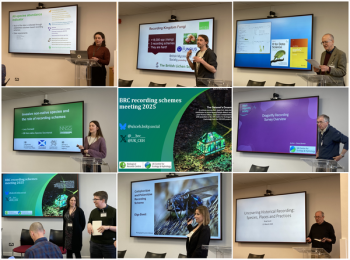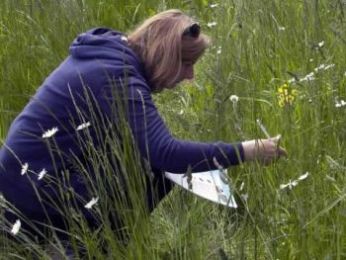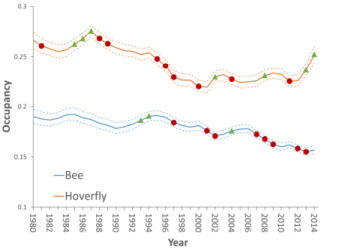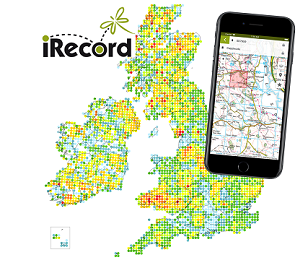The BRC is supported by the Joint Nature Conservation Committee (JNCC) and the UK Centre for Ecology & Hydrology (UKCEH), a not-for-profit research institute which receives support from Natural Environment Research Council (NERC) National Capability funding. The work of BRC is a major component of the National Biodiversity Network (NBN).
News from the Biological Records Centre
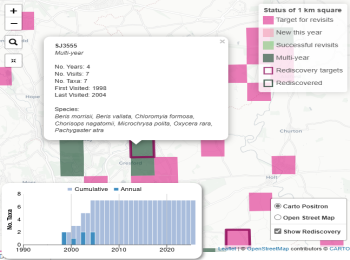
The Targeting Revisits Maps is an interactive tool giving biological recorders information to discover the places near them to go recording. There are Targeting Revisits Maps for five taxonomic groups and over the past 5 years we’ve had great feedback from users. This year we’ve improved the…
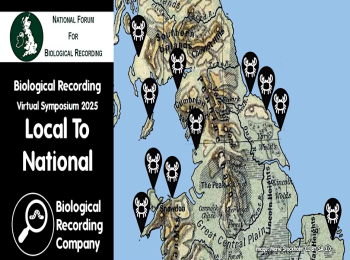
Go to the Eventbrite page for bookings and further details
Monitoring biodiversity isn’t just important – it’s essential. 🌱 From conservation…
What we do
Working in partnership with more than 100 recording schemes and societies, BRC provides a national capability to support and encourage biological recording for a wide range of plant and animal groups, improving how data is collected, made available and used.
BRC helps the recording community to publish atlases, data and other online resources to provide essential information which informs research, policy and the conservation of our heritage of wildlife. As part of this work we provide website hosting and development support.
We apply innovative use of technology and science excellence to help harness the enthusiasm and knowledge of naturalists, and enable them to collate and analyse their records.
Many UKCEH staff contribute towards the work of BRC; they are listed on our staff page.
Why we do it
The historical legacy of biological recording in Britain and Ireland is unique and inspiring. Many naturalists are committed to studying our flora and fauna, and BRC’s work helps to ensure that we make the most of their observations. The vast datasets built up through the expertise and commitment of the volunteer recording community enables a range of ecological questions to be addressed.
The value of recording data is enhanced through innovative use of technology and analytical methods, plus integration with other data sources on the ecology of species and the physical environment.
Distribution trends derived from the large-scale and long-term datasets provide evidence for many purposes, particularly in relation to understanding impacts of climate and habitat change, to informing policy to reduce negative impacts.










